- Home
- Bernice Rubens
I, Dreyfus Page 3
I, Dreyfus Read online
Page 3
The same warder let him into the cell. Dreyfus sat writing at a table, a table that he had acquired together with a chair. He did not rise to greet him. He merely lifted his head in acknowledgement, and mumbled that he would attend to him shortly. Sam Temple felt that he was applying for a vacancy. He did not sit down on the cot. He stood and waited to be seen to. He watched his client as he wrote. The man had changed. He looked relaxed, almost at ease with himself. His lips were mouthing the words he wrote and a hint of a smile played around his eyes. At last he put down his pen, rose from his chair and put out his hand.
‘Good of you to come,’ he said.
In that moment Sam Temple felt sure he could become the man’s friend. He smiled.
‘I see you’ve made a start,’ he said.
‘I’m telling myself a story,’ Dreyfus said. ‘A true one.’
‘I never ask to see work in progress,’ Temple said, ‘but some writers need to show instalments. If you wish it, I would be more than happy to look at it.’
‘Absolutely not.’ Dreyfus was adamant and for a moment Sam feared that he would never at any time allow a reader to look at his work, even when it was finished. He’d come across other writers with the same reluctance. But he would cross that bridge when he came to it, and meanwhile he would try to gain the man’s confidence.
‘I don’t want to disturb you,’ he said. ‘I came just to keep in touch and to find out if there was anything I could do for you.’
‘There is something,’ Dreyfus said. ‘I would be grateful if you would visit my wife. I fear she is very isolated. She is allowed only one visit a month and it would be a relief if you gave her news of me from time to time.’
Sam Temple was delighted. It was as if Dreyfus had read his mind.
‘I’d be very happy to do so,’ he said. He put out his hand which Dreyfus took, first with one hand then covered it with the other, and he actually smiled. ‘You can read it when it’s finished,’ he said. ‘But I want no doctoring. This is my story and the truth that I am telling. I do not want the truth diluted, nor subject to grammar. Especially grammar, which is often nothing but decoration.’
Though spoken in a friendly tone, Dreyfus’s words were those of dismissal. Sam Temple took his leave, wishing him well with his story.
‘I’ll come again soon, if I may,’ he said.
‘I am always here,’ Dreyfus said with a smile.
Once back in his office, Sam Temple wrote to Mrs Dreyfus, appraising her of her husband’s request and asking if he could pay her a visit. Her answer was prompt and by telephone. She eagerly asked him to tea that very day.
He brought flowers and chocolates, more out of gratitude than etiquette. He was looking forward to the visit. He was curious. Little was known about Mrs Dreyfus and her children. She had daily attended her husband’s trial and newspapers had managed to secure her photograph. But she had never opened her mouth with a comment. A meeting with Mrs Dreyfus was almost as big a scoop as securing her husband’s story, but he would not let his visit be known. If the press were to discover it, he would be hounded by their hacks.
She opened the door herself. She was an attractive woman and totally unadorned. She wore no make-up or jewellery. A simple black dress proclaimed her grief, and its white lace collar postponed her mourning. She ushered him into a small parlour that served for sitting and dining. A visible kitchen led off one side. A tea-table was set in the middle of the room. The furnishings were utility and the walls were hung with tasteless prints. No attempt had been made at a personal stamp on the place. It was drab and depressing and clearly represented nobody but the landlord’s idea of minimum accommodation. It was anonymous and rented.
When Dreyfus had been charged, the family had lost its residence as well as its income, and it seemed that Mrs Dreyfus had settled into the namelessness that she craved. Alongside one wall was a sofa that in its time had taken the weights and shapes of many a tenant and its uncut moquette was smooth with use. It was dirty too, but those who sat on it were well kempt and scrupulously clean. Two young children and a man, who looked unnervingly like Dreyfus himself. He was introduced as Matthew, Dreyfus’s brother, and the two Dreyfus children as Peter and Jean. Sam regretted the lavish bouquet he had bought. It lay on the table like an insult. But all of them were welcoming. Their visitor had been with the one who was nearest and dearest to all of them.
The family gathered round the table and Sam took the place that was offered him. The children sat opposite. They were solemn, both of them, and wore that hopeless look that Sam had seen on their father’s face the first time he had visited him.
‘Your father is well,’ he said to them. ‘I saw him only yesterday.’
How could he be well, they must have thought, for they showed no response.
‘I’ll make the tea,’ Mrs Dreyfus said and she went into the kitchen.
There was no word at the table, and all eyes were fixed on the plates and it was a relief when the whistle of the kettle broke the silence. Shortly Mrs Dreyfus returned with the teapot and there were things to do to occupy those seated. Then, when they were all served, Sam felt he ought to initiate a conversation. He started with the children.
‘What school do you go to?’ he asked. Then immediately regretted the question.
But Peter answered. ‘We don’t go to school.’
‘They say terrible things about Papa,’ Jean contributed.
‘So we don’t go,’ they said together.
‘Well,’ Sam rallied, ‘if that’s the case, we could all go to the zoo one day. Any weekday and we won’t have to queue and fight our way through the crowds. I haven’t been for ages. D’you want to come with me one day soon? If your mother will let you. In fact we can all go.’
He delivered his invitation in almost one breath and each word nurtured his own excitement. He couldn’t wait to make a positive arrangement.
‘We would love that. All of us,’ Matthew said.
They were the first words he had spoken, and he gave a smile with them as if relieved that he had opened his account at last. And after that there was no stopping him. He itemised all the animals that he loved and why, and then went on to defend the principle of zoological gardens against those arguments that would see them closed. Sam noticed how the children gazed at their uncle Matthew in astonishment as if they too were hearing him speak after a long silence. And they joined in the debate, laughing, and so did Mrs Dreyfus, and Sam had the impression that his presence in the house had loosened the rope that tied them all into silence, the silence of the dire unmentionable, and that in the company of a third unrelated party they could once again savour the taste of normalcy. In a slight pause in the debate, Sam took the opportunity to organise a definite date for their proposed visit which they all agreed could be early in the following week.
He turned to Mrs Dreyfus. ‘It will be something to tell your husband about,’ he said.
‘I think I can leave that to the children,’ she said. ‘We’re due for a visit in two weeks’ time.’
It was a cue for silence to take over once more and Sam allowed it, accepting a biscuit that was offered him.
‘Why don’t we take Jean to the park, Peter?’ Matthew asked. He sensed that his sister-in-law needed privacy. When they had gone, Mrs Dreyfus set about arranging the flowers that Sam had brought.
‘I’m very grateful to you Mr Temple,’ she said. ‘I think you’ve given my husband a purpose at last. His last letter was almost merry. And, of course, the money is very helpful. Now it will be much easier for me.’ Suddenly she put her hand on Sam’s arm. ‘It’s hard for the children, Mr Temple,’ she said.
‘I imagine so.’
‘I daren’t send them to school. They are bullied and insulted. Even by their teachers. I know my husband is innocent. And so do they. But they cannot protest. Their father has been condemned.’
‘We must hope for an appeal,’ Sam said. Then, after a pause, ‘Do you have any friends?’
&n
bsp; ‘I had friends,’ she said, ‘but now no one wants to know us. Matthew is wonderful. He comes as often as he can. But he tells me that he is now friendless too. Dreyfus is not a good name, Mr Temple.’ She took her hand from his arm and started to stack the tea things.
‘I’ll help you,’ he said.
She did not dissuade him, and once they were in the kitchen he said, ‘D’you think of getting a tutor for the children? They would be happier if they were occupied.’
‘I’ve thought of it, of course,’ she said, ‘and since we now have money it should not be difficult. But where would I find a tutor for the Dreyfus children? I’m too frightened even to enquire.’
‘Would you leave it to me?’ Sam asked. ‘I think I know somebody. Someone sympathetic. Someone who believes as I do, in your husband’s innocence.’
She gave him a radiant smile. ‘I would be so grateful,’ she said. She started to wash the dishes and she handed him a tea-towel. She wanted to keep his company. ‘Will you come and see us again?’ she asked.
‘Of course. And you can ring me any time.’ He picked up a plate. ‘How did you meet,’ he asked, ‘you and your husband?’
‘Through my friend, Susan. My best friend. Or at least she was. Though not any more. Not any more,’ she repeated.
Sam refrained from enquiring further on the subject of that lost friendship. He sensed it was a private affair and had little to do with Dreyfus’s present predicament. But he was wrong. It had everything to do with it, and Lucy Dreyfus seemed willing enough to throw light on that loss.
‘I met Alfred one evening at Susan and Matthew’s flat, and it went from there. It seemed a blissful arrangement at the time. We were a happy foursome. And remained so. Until the troubles. We used to take holidays together, the four of us, and later on the children as well. It seemed that our friendship would be eternal, cemented now by our kinship and the closeness of our children. Then when Alfred was arrested and the name Dreyfus became a curse across the world, she quietly changed her name by deed poll together with those of the children. Susan Smith she is now. Unaccusable. She won’t let her children see Peter and Jean, and she’s none too happy about Matthew’s loyalty. He’s been absolutely wonderful. All the way through.’
‘Are they still together?’ Sam asked.
‘They live in the same house, but the marriage is over. He daren’t move out. If he did, can you imagine what the newspapers would make of that story?’
‘Does your husband know of this?’
‘No. And he mustn’t know. It would upset him terribly.’ Lucy put the dishes away. ‘I don’t know what I’d do without Matthew,’ she said.
‘What work does he do?’
‘What work did he do, you probably mean. He’s an engineer. He had a highly responsible executive post. But after Alfred’s arrest, they began to drop hints of redundancy, and after a few weeks he was told to leave.
‘How will he manage?’
‘He has some savings. And we shall share the book money. Alfred insists on that.’
They returned to the table. ‘I’m glad I came,’ Sam said. ‘And I hope you’ll let me come often.’ He arranged a date for their trip to the zoo and promised to organise a tutor. ‘When we go to the zoo, I’d like to include Matthew’s children,’ he suggested.
‘Susan wouldn’t allow it,’ Lucy said. ‘You know Mr Temple, sometimes I think she believes my husband is guilty.’
Sam shuddered. ‘How torn that family must be,’ he said. He rose to go, taking her hand. ‘Any time, Mrs Dreyfus, you can call on me. Matthew too. Please tell him.’
She took him to the door. ‘I shall see Alfred soon,’ she said. ‘He will be happy that I have your support.’
‘You’ll find him changed I think,’ Sam said. ‘He’s more at ease with himself. I might go as far as to say that he has the odd happy moment.’
On his way back to the office, Sam passed the local park. In the distant children’s playground, he discerned Matthew, Peter and Jean on the swings, swinging in rhythm, higher and higher, as if nothing in their orbit had changed in their lives. They whirled in a time when there were no stuttered breaths, no sighs, no secret tears, and that only when the swings had run their course, would they notice the clouds that had begun to gather.
Chapter 7
It was natural that Matthew and I attend our parents’ village school. We did after all, live on the premises. And though we were in no way favoured, we were happy there. Matthew is younger than me, and throughout our childhood I was his natural protector. Now the roles are somewhat reversed. Since my arrest he has guarded me with as much indignation as my own. He has petitioned, he has pleaded and above all he has protected Lucy and my children. I love him more and more. Do you have a brother, Mr Wallworthy? If so, you will know of that love. It is like no other. In its gentle language are no words of expectation or disapproval, no censure of any kind. The fraternal affection is a God-given implant at birth. One can no more ignore it than deny a gene.
When I was eleven, I went to the high school in Canterbury where most of the village schoolchildren continued their education. A year later, Matthew followed me. It was a Church of England school and much emphasis was placed on religious instruction. Every morning at assembly we sang at least two hymns. The word Jesus was an inevitable ingredient of each song. But I never sang it. The word seemed to me to be too exclusive. I said ‘God’ instead, even though it didn’t scan, but it was a word that covered anybody and everybody. But I said it in a whisper. I think Matthew did the same. I wonder now where that word-aversion had come from. It must have been from my parents. I had never heard the word from their mouths but perhaps I may have noted its conspicuous absence. Somehow they had managed to avoid it, and it saddens me now to reflect on how, all their lives, they arranged to pay lip-service to a god whose name they could not even utter. In some corner of their minds their parents dwelt with a chronic permanence and stilled their tongues on that forbidden word, and that taboo must have passed into our genes. Invincibly.
We did well at that school. Both of us. We struggled with and often relished those disciplines which today are not even taught. Grammar, sentence analysis, parsing, those fields of exciting exploration seem to have no place in today’s curricula and I am sad for my children’s loss. Do you have children, Mr Wallworthy?
From Canterbury I managed a scholarship to Oxford, and then I entered a teachers’ training-college. A year later Matthew left for Manchester to study engineering. It was the first time in our lives that we had been separated. Until that time I hadn’t realised how much a part of me he was, and I think he felt the same. We wrote to each other regularly, but I missed his smile, his shrug, his nudge, those movements that use no alphabet. I looked forward to every Easter and Christmas and summer breaks, when we could all be together in the village school house. In time he married, and a few years later so did I. But the bond between us remained unshakeable.
In the course of all that schooling, I made many friends. And we kept in touch over the years with letters, parties and reunions. It all looked so permanent. Until my troubles. Then the letters stopped. It was as if they were denying ever having known me. Except for some, who profited by my fall. Who advertised their acquaintance. Who sold their pathetic stories to the newspapers. I WAS AT SCHOOL WITH THE VILLAIN, was the headline of one of them and DREYFUS – SOME PREFECT! another. They hurt me, those stories. The matter of them was for the most part pure invention and its interpretation vicious and baying for blood. I was hurt most of all for Lucy and the children. But they didn’t lose faith. Not for one moment. It was I who crumbled. It was I who lost hope. Why, there were even moments, terrible moments, when I actually believed myself to be guilty of all those sins of which I had been accused. I had a strange feeling that it would be easier for me to be guilty. That it would be a relief almost. That my guilt would validate my cruel punishment. So for many days, I sat in my cell and told myself that I had done what they had said I had done. I repe
ated it to myself until it became a daily mantra. But it never carried any conviction. So I replaced it with the phrase ‘I am innocent’. But though that phrase carried conviction with ease, it did not give me hope. It simply enraged me and I paced my fury up and down my cell for many days. Then, God be thanked, Lucy was allowed a visit and I felt a traitor to her trust and radiant faith. She saved me from my deeply destructive self and I am whole again, whole in my innocence. Unshakeable.
From time to time, the governor gives me a newspaper, and he has allowed me a radio. For the first few weeks I never switched it on. It was my arrogance that ignored it, for I couldn’t imagine that anything in the world was happening that was more significant than my own incarceration. But in the occasional newspaper I read items that slowly stirred my interest and I was curious as to how they developed. I was forced then to switch on the set, and since that time it has rarely been silent. So I am au courant with current events. I am currently following the American election, but my main interest lies in the Middle East. Every night I listen out for that news item, and when there is nothing, I feel relieved. For from my point of view, there is rarely any good news coming out of that area. And by good news I mean that which is on my side. The side of Israel. After all that has happened to me I could surely be on no other side. Not that that side is always in the right. I am appalled by some of the wrongs that it perpetrates. But I want Israel to survive, otherwise those who accused me will, in some roundabout way, be vindicated.
My trial and its unjust verdict coincided with a fearful Israeli attack on the West Bank, in which many Palestinians, some of them children, were maimed and killed. The newspapers rightly condemned it; there were demonstrations in the streets. But others got on the wagon, and all those inbred, inborn, engrained anti-Semites suddenly found a new word for their hate. That word was anti-Zionism, and that translation made their Jew-hate respectable. And I was the spark. The name Dreyfus was the dynamo.

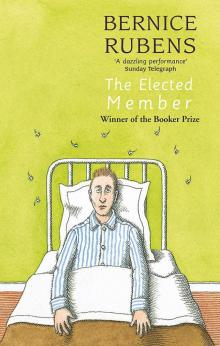 The Elected Member
The Elected Member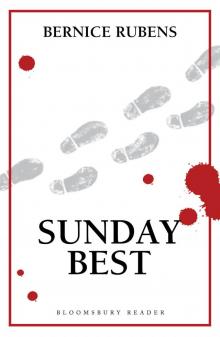 Sunday Best
Sunday Best Nine Lives
Nine Lives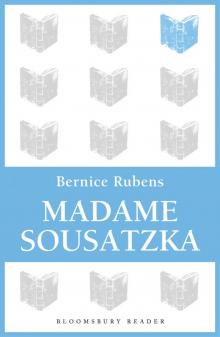 Madame Sousatzka
Madame Sousatzka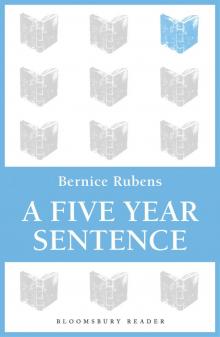 A Five Year Sentence
A Five Year Sentence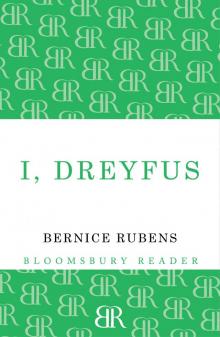 I, Dreyfus
I, Dreyfus